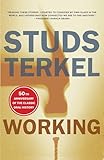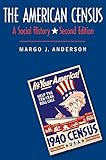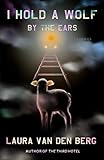On December 29, 2019, in Queen Elizabeth University Hospital in Glasgow, the visionary artist and writer Alasdair Gray died. His last book published before his death and the first I read in 2020 was Late Verses, a slim, immaculately wise, and heartrending collection of poems. The collection beautifully preserves the big questions of life and death, even if we are all just, in Gray’s words, “parts of a universe that does not need us at all.” After learning of his death from a text message from his publisher at ANTIBOOKCLUB, who knows of my adoration for Gray, I sat for a quiet moment with the news that, in retrospect at the end of 2020, feels half like an omen and half like a kidnapping.
When the pandemic started and just as Chicago’s downtown was pre-apocalyptically shuttered, I was in the midst of reading Baron Wenckheim’s Homecoming by László Krasznahorkai, which is translated with acute perception by Ottilie Mulzet. Maybe, this is appropriate because reading Baron, like so much of Krasznahorkai’s work, is both an act of literary faith and like entering another dimension with no possible return.
During the initial lockdown, admittedly, I read very little in the way of books. My wife, a public-school art teacher, and I found ourselves working from home with our kids, one nearly three and the other an infant, both wondrous and ferociously demanding ages. In the molasses and uncertainty of time, we explained to our toddler that COVID was The Big Sickness and that we didn’t know how long it might last. One afternoon in early April, on one of our people-avoiding nature walk along the North Branch Chicago River, the toddler and I threw rocks in the river and watched the ducks plodding along the bank. He held my hand and told me that the ducks were his best friends. Some nights, after my kids were finally asleep, I went to the back porch of my second-floor apartment to listen to the ever-quieting city and watch the terribly comforting alley, which, for some one hundred years, I thought more than once, has sped away so much disease in enormous garbage trucks. I thought about Yuri Herrera’s extraordinary novel The Transmigration of Bodies, in which a plague swept in by Egyptian mosquitos terrorizes a Mexican city, but I couldn’t bring myself to read it again just then. Instead, on my phone, I endlessly read biology articles. Like you, in an exhausted Borgesian gaze, I also read a million tweets. How many hours have we spent this year embedded in the news of an inexorably collapsing empire and the fetid fascist realities conceived by its ruling class and all its chantas, all its hollow men and women willing to sell anything they can get their hands on, including our futures. But we also took to the streets and read news about collective movements, love, and solidarities tethering us over the abyss, didn’t we?

Katy Simpson Smith’s exceedingly elegant and brilliant novel The Everlasting, which takes place in Rome and spans two thousand years, shook me from my non-book-reading and left me in a historical daze. For BOMB, I had the opportunity to interview her and wrote, “Smith’s novels, like flawless nautilus shells, contain hidden chambers, spiraling around the central theme of free will—humanity’s attempt to claim purpose in a tough, mad world.” Months and months later, this feels even more implicitly true of her books.

American work life and American home life have always been in a slow-motion collision course and this has only become more evident during the pandemic, so at the urging of Christopher Borelli in this insightful Chicago Tribune article, I too turned in occasional anger and solace to Studs Terkel’s Working, a collection of more than 130 conversations with everyday workers, brimming with inequity, vulnerability, and pride. “Jobs are not big enough for people,” Studs Terkel once described the nature of work.

In April, my tio in Ecuador, a musician and singer with a powerful ageless voice, died of what we suspect was COVID-related pneumonia. I watched his funeral procession in Guayaquil on Zoom. Something as infinite as a black screen cannot contain something as infinite as grief. Instead, grief distorts space, time, and language. It insults language. It devours words. When grieving, entire dictionaries dissolve into atmospherically thin air. In short, grief, at its primordial core, is wordless. It wasn’t until months later when I stumbled upon Cristina Rivera Garza’s Grieving: Dispatches from a Wounded Country, a gorgeous and painful mediation on violence and grief in Mexico, that I understood that writing about grief is also a form of collective radical departure:
As we write, as we work with language – the humblest and most powerful force available to us – we activate the potential of words, phrases, sentences. Writing as we grieve, grieving as we write: a practice able to create refuge from the open. Writing with others. Grieving like someone who takes refuge from the open. Grieving, which is always a radically different mode of writing.


Summer nights, before bed, I turned to random pages or sections of Roberto Bolaño’s apocalyptic, meteoric masterpiece 2666, but to say I re-read it in 2020 is a lie. It’s the novel I’m always reading, and I think this might also be true in 2023 or 2047. Other nights, I re-read sections of Laurent Binet’s astonishing novel HHhH, which confronts nothing less than the illusion of history, or short stories from Liliana Colanzi’s utterly unique and otherworldly collection Our Dead World. I re-read passages of Samuel R. Delany’s hallucinogenic magnum opus Dhalgren. I suppose, like all the cicadas then burning into cyclical noisy life outside my apartment, I sought a type of familiar strangeness.

Still, the future beckoned and I was fortunate enough to visit, if briefly, 2021 through a few exhilarating galleys. Jakob Guanzon’s Abundance, which is about a father’s harrowing struggle to provide a home for his son, is elegiac, fiery, and heartbreaking. In its reading, I held my sons a little tighter. Waiting for the Night Song by Julie Carrick Dalton tracks the inescapable connectedness between humankind and ecology, hidden truths and memory. Hades, Argentina by Daniel Loedel is a complex and haunting novel about regret and the horrors of the body politic during the Guerra Sucia in Argentina.

At some point, rather unexpectedly if haphazardly, I re-started research for a novel in progress. I read the opening chapters of the both the immersive The American Census: A Social History by Margo J. Anderson and the intriguing The Sum of the People: How the Census Has Shaped Nations, from the Ancient World to the Modern Age. Both explore a central question that has obsessed me ever since I learned as a kid that I was something called biracial and that my family had come from elsewhere, as one first grade teacher, a spiritual devotee of Reagan, once put it: Who among us truly count? A fickle and violent American refrain.

Some weeks after the police riots, I read We Fight Fascists: The 43 Group and Their Forgotten Battle for Post-war Britain by Daniel Sonabend, which is about forty-three Jewish servicemen who, in 1946, returned to London to find and then fight a type of sickly fascism revived there. It’s an essential and historically piercing read about organizing at all costs. In that vein, I also later read two brilliant and presently valuable essays by Ramsin Canon, Organizations in Movement and What it Means to Be a Marxist. I devoured every essay I could find by Emily Raboteau, including Lessons in Survival, a genre-defying meditation on climate change, familial displacement, and Harriet Tubman.


In February, my debut novel was published and one unexpected joy of this was the solidarity soon found after with other writers releasing work into the vortex of a global pandemic/election year. I’ve come to think of all the books released in 2020 as a type of ecosystem under duress. But what a particular gift these books are – in this – our year of unreality! I only wish I would’ve had time for more. I read Ilana Masad’s tender, rebellious odyssey All My Mother’s Lovers and Maxim Loskutoff’s fierce, symphonic, and otherworldly neo-Western Ruthie Fear. Trust Me, by Richard Z. Santos, which centers on a crooked land development deal in New Mexico, is a vivid and compulsively sharp condemnation of American politics.The characters in Rachel Swearingen’s urgent collection How to Walk on Water and Other Stories reminded me of one of Dostoevsky’s central concerns about being human: why the fuck do we willingly open our doors to ruin? Laura van den Berg is from a better, stranger, parallel universe and her deeply powerful collection I Hold A Wolf by the Ears is like a one-way ticket there. Lydia Millet’s prophetic novel A Children’s Bible tore through all my generational and ecological angst, or rather, fury in one night. It’s also a shrewd reminder that the kids are – indeed – alright! Cher Ami and Major Whittlesey by Kathleen Rooney is a brilliant and elegant investigation of war, propaganda, queer history, and ecological sentience (and so much more!) and made me go digging through my bookshelves like a madman until I found the epigraph to the novel The Glory of the Empire: A Novel, A History by Jean D’Ormesson:
“History is a novel that happened; a novel is history that might have happened.” E. and J. De Goncourt

The year ends with the incomparable Fireflies by Luis Sagasti, which asks one of the most important questions literature could ever ask: How do we even begin to narrate the history of the world? In 1918, another reality flattening year full of brutality and pandemic, the philosopher Ludwig Wittgenstein retreated to Norway after the man he loved most in the world died in a military flying accident. Of Wittgenstein’s time there, Sagasti writes, “In the extreme cold, words emerge stuttering. They pile up in the mouth and are expelled one by one, guillotined by the teeth. Words with a kind of dyslexia that goes unnoticed, like seedless grapes, like fireflies in the midday sun.”
More from A Year in Reading 2020
Do you love Year in Reading and the amazing books and arts content that The Millions produces year round? We are asking readers for support to ensure that The Millions can stay vibrant for years to come. Please click here to learn about several simple ways you can support The Millions now.
Don’t miss: A Year in Reading 2019, 2018, 2017, 2016, 2015, 2014, 2013, 2012, 2011, 2010, 2009, 2008, 2007, 2006, 2005
The post A Year in Reading: Michael Zapata appeared first on The Millions.
Source : A Year in Reading: Michael Zapata








